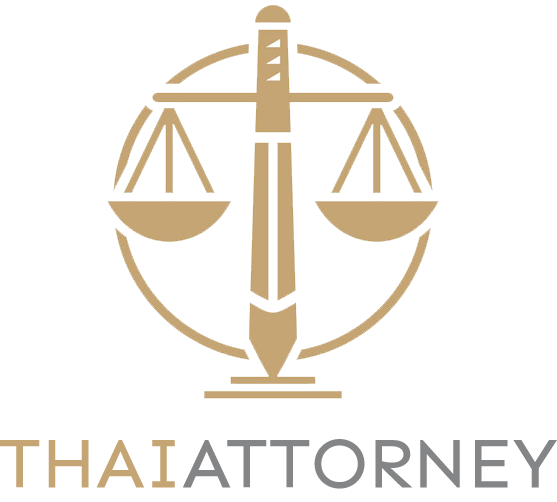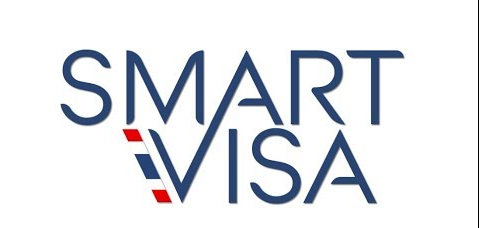Thailand SMART Visa program is a unique initiative designed to attract highly skilled professionals, investors, executives, and entrepreneurs from around the world to live and work in Thailand. Launched in February 2018, this program represents a significant shift in Thailand’s immigration policies, focusing on fostering innovation and technology-driven industries within the country. This article will provide an in-depth examination of the SMART Visa program, including its categories, eligibility criteria, application process, benefits, and challenges, as well as its implications for the Thai economy.
Background and Objectives of the SMART Visa Program
The SMART Visa program was introduced by the Thai government as part of its broader Thailand 4.0 economic model, which aims to transform the country into a high-income nation through the promotion of innovation, creativity, and technology. The program was specifically designed to address the shortage of skilled labor in key industries, attract foreign direct investment (FDI), and stimulate the growth of new technologies and industries in Thailand.
The SMART Visa program targets ten key industries identified as crucial for Thailand’s economic development, including:
- Next-Generation Automotive: Focusing on electric vehicles (EVs) and autonomous driving technologies.
- Smart Electronics: Promoting advanced manufacturing and electronics.
- Affluent, Medical, and Wellness Tourism: Targeting high-value tourism sectors.
- Agriculture and Biotechnology: Encouraging sustainable and innovative agricultural practices.
- Food for the Future: Enhancing Thailand’s food production capabilities with advanced technologies.
- Robotics: Supporting the development of robotics and automation.
- Aviation and Logistics: Advancing Thailand’s aviation and logistics industries.
- Biofuels and Biochemicals: Promoting the use of renewable energy sources.
- Digital: Encouraging growth in the digital economy, including software development and IT services.
- Medical Hub: Positioning Thailand as a leader in healthcare and medical research.
Categories of the SMART Visa
The SMART Visa program offers five main categories, each tailored to attract different types of professionals and investors. These categories are:
1. SMART T (Talent)
- Eligibility: Highly skilled professionals with expertise in the targeted industries.
- Requirements: A minimum monthly salary of THB 100,000 and a minimum employment contract of one year. Applicants must possess skills that are in demand in one of the targeted industries.
- Benefits: A four-year visa (renewable) with exemption from the work permit requirement, the ability to work for multiple employers, and spousal work privileges.
2. SMART I (Investor)
- Eligibility: Investors who invest in companies that operate in the targeted industries.
- Requirements: A minimum investment of THB 20 million in a technology-based company in the targeted industries.
- Benefits: A renewable visa for up to four years, work permit exemption, and the ability to bring immediate family members with extended privileges.
3. SMART E (Executive)
- Eligibility: Senior executives working in technology-based companies in the targeted industries.
- Requirements: A minimum monthly salary of THB 200,000, a bachelor’s degree or higher, at least ten years of work experience, and an employment contract with a company in one of the targeted industries.
- Benefits: A four-year renewable visa, work permit exemption, and the ability for spouses to work legally.
4. SMART S (Startup)
- Eligibility: Entrepreneurs and startup founders who wish to establish a business in one of the targeted industries.
- Requirements: Applicants must have a deposit of at least THB 600,000 in a Thai bank account, health insurance coverage, and a concrete plan to establish a business in Thailand. The startup must be registered within one year.
- Benefits: A renewable visa for one to two years, work permit exemption, and family privileges.
5. SMART O (Other)
- Eligibility: Dependents of SMART Visa holders (spouses and children).
- Benefits: The ability to live and work in Thailand for the same duration as the SMART Visa holder.
Application Process and Documentation
The application process for the SMART Visa is designed to be efficient and straightforward, though it requires meticulous preparation to ensure compliance with all criteria. The process typically involves the following steps:
- Pre-Qualification Endorsement: The first step is obtaining an endorsement from the SMART Visa Unit of the Board of Investment (BOI). Applicants must submit their qualifications and supporting documents for review to ensure they meet the eligibility criteria.
- Submission of Application: After receiving the endorsement, applicants can submit their SMART Visa application to the Royal Thai Embassy, Consulate, or Immigration Office.
- Visa Issuance: Upon approval, the SMART Visa is issued, allowing the holder to enter and reside in Thailand under the conditions specified for their visa category.
Required Documents:
- Endorsement letter from the BOI
- Proof of qualifications (educational certificates, employment contracts, etc.)
- Financial statements or investment proof
- Health insurance (for SMART S applicants)
- Passport with at least six months’ validity
Benefits of the SMART Visa Program
The SMART Visa offers a range of benefits that are particularly attractive to highly skilled professionals, investors, and entrepreneurs:
- Work Permit Exemption: Unlike other visa types in Thailand, SMART Visa holders are not required to obtain a separate work permit, simplifying the process of starting work immediately upon arrival.
- Long-Term Stay: The SMART Visa allows for stays of up to four years, with the possibility of renewal, providing stability and long-term planning opportunities for visa holders and their families.
- Family Inclusion: Spouses and children of SMART Visa holders can live in Thailand, with spouses being eligible to work legally without needing a separate work permit.
- Multiple Employer Flexibility: SMART T visa holders have the freedom to work for more than one employer within the targeted industries, providing flexibility and opportunities for collaboration.
Challenges and Criticisms
While the SMART Visa program offers numerous advantages, it is not without its challenges. Some of the main criticisms and obstacles include:
1. Stringent Requirements
The eligibility criteria for the SMART Visa, particularly the income thresholds and investment requirements, are considered high by some applicants, potentially excluding highly skilled individuals who may not meet the financial criteria but could still contribute significantly to the Thai economy.
2. Limited Awareness and Accessibility
Despite its benefits, the SMART Visa program is not as widely known as other visa options, both among potential applicants and within certain business sectors in Thailand. This limited awareness can result in underutilization of the program.
3. Bureaucratic Hurdles
Although the SMART Visa program aims to streamline the process for skilled workers and investors, some applicants report facing bureaucratic challenges, such as delays in processing and difficulties in obtaining necessary documentation from Thai authorities.
Impact on the Thai Economy
The SMART Visa program is a strategic tool in Thailand’s efforts to attract global talent and investment, aligning with the Thailand 4.0 economic model. By encouraging the influx of highly skilled professionals, innovative startups, and significant investments, the program is expected to have a positive impact on various sectors of the Thai economy.
1. Boosting Innovation and Technology
By targeting industries such as robotics, smart electronics, and biotechnology, the SMART Visa program is driving innovation in sectors that are critical to Thailand’s future economic growth. The program helps fill skills gaps, brings in cutting-edge expertise, and fosters collaboration between local and international talent.
2. Increasing Foreign Direct Investment
The SMART I visa, which targets investors, is designed to increase foreign direct investment in Thailand’s technology and innovation sectors. By offering long-term residency and work privileges, the program makes Thailand a more attractive destination for international investors.
3. Enhancing Global Competitiveness
The influx of global talent and investment through the SMART Visa program enhances Thailand’s global competitiveness, particularly in emerging industries. By positioning itself as a hub for innovation and technology, Thailand can attract more multinational companies and startups looking to enter the Asian market.
Future Prospects and Reforms
As the global economic landscape evolves, the SMART Visa program will likely need to adapt to remain relevant and effective. Potential future reforms and expansions could include:
1. Lowering Barriers to Entry
To attract a broader range of talent and investors, the Thai government may consider lowering some of the financial thresholds or introducing additional visa categories that cater to mid-level professionals or smaller-scale investors.
2. Promoting the Program Internationally
Increasing international awareness of the SMART Visa program will be crucial to its continued success. The Thai government may need to invest in more targeted marketing efforts and partnerships with global business networks to promote the program.
3. Streamlining the Application Process
Further streamlining the application process and reducing bureaucratic delays will enhance the attractiveness of the SMART Visa program. This could involve more digitalization of the application procedures and improved coordination between Thai government agencies.
Conclusion
Thailand’s SMART Visa program is a forward-thinking initiative that plays a critical role in the country’s economic development strategy. By attracting global talent, investment, and innovation, the program supports the transformation of Thailand into a high-income, technology-driven economy. While challenges remain, the SMART Visa program offers significant opportunities for professionals, entrepreneurs, and investors looking to contribute to and benefit from Thailand’s economic growth. As the program evolves, it has the potential to become a cornerstone of Thailand’s integration into the global innovation ecosystem, driving long-term prosperity and development.

